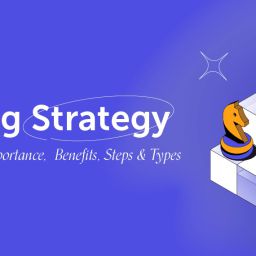
In today’s fast-paced and competitive world of software development, businesses are constantly seeking ways to deliver high-quality products efficiently. Agile software development methodology has become a popular approach that empowers teams to respond to changes, embrace collaboration, and deliver value in shorter development cycles. LeMeniz, a leader in software development, provides a comprehensive guide to Agile methodology that equips businesses with the knowledge and practices to achieve successful software projects. In this blog, we will explore LeMeniz’s guide to Agile software development methodology and highlight the key principles and strategies that lead to effective and customer-focused software delivery.
- Iterative Development and Sprints: Central to Agile methodology is iterative development, where projects are broken down into smaller, manageable increments called sprints. LeMeniz advises teams to work in short sprints, typically two to four weeks, to deliver specific features and functionalities. This iterative approach allows for continuous feedback, adjustments, and early value delivery.
- Customer Collaboration and Involvement: LeMeniz emphasizes the importance of customer collaboration throughout the development process. Regular interactions with stakeholders and customers ensure that their needs are understood, and their feedback is incorporated into the project. This collaboration fosters a deeper understanding of customer expectations and results in a product that aligns with their requirements.
- Flexibility and Adaptability: Agile methodology promotes flexibility and adaptability. LeMeniz encourages teams to be open to changing requirements and priorities. As new information emerges or market dynamics shift, Agile teams can adjust their plans to ensure that the software remains relevant and delivers maximum value.
- Cross-Functional Teams and Empowerment: To ensure efficiency and innovation, LeMeniz recommends forming cross-functional teams. These teams bring together diverse skills and expertise necessary to complete the project. By empowering self-organizing teams to make decisions, businesses foster a culture of collaboration and ownership.
- Regular Reviews and Retrospectives: Agile projects include regular reviews and retrospectives. LeMeniz advises conducting sprint reviews to demonstrate completed work to stakeholders and gather feedback. Additionally, retrospectives at the end of each sprint enable teams to reflect on their processes, identify areas of improvement, and implement necessary changes.
- Continuous Integration and Testing: LeMeniz advocates for continuous integration and testing throughout the development process. By integrating code frequently and running automated tests, teams can identify and resolve issues early, ensuring the stability and quality of the software.
- Incremental Value Delivery: Agile focuses on delivering incremental value to customers. LeMeniz advises prioritizing features based on customer needs and business goals. This approach allows businesses to receive feedback early, make data-driven decisions, and realize the benefits of the software sooner.
Conclusion: Embrace LeMeniz’s guide to Agile software development methodology to streamline your development processes and drive customer-focused solutions. By adopting iterative development, prioritizing customer collaboration, staying flexible and adaptable, forming cross-functional teams, conducting regular reviews and retrospectives, implementing continuous integration and testing, and delivering incremental value, businesses can achieve software excellence and exceed customer expectations. Let LeMeniz be your partner in Agile transformation, and together, we will navigate the software development journey with efficiency, collaboration, and a customer-centric approach, driving your business towards lasting success.















